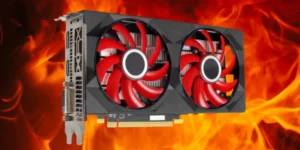Is liquid cooling worth it? Yes, it’s the most effective cooling method. It is worthwhile if your PC is alway perform heavy tasks such as filming or gaming.

You may have heard this term being thrown around by PC enthusiasts, but what is liquid cooling, anyway?
Simply put, liquid cooling is a method used to keep a computer’s processor temperature low. The temperature is kept low by a liquid cooling agent, such as water.
There is a lot of debate on whether liquid cooling is worth the struggle of setting it up, and that is probably why you are here!
RELATED: Motherboard Components – A Guide To Building Your Own PC
In this article, we will first explain how liquid cooling works. Then we will go over some common advantages and disadvantages of using liquid cooling. By the end, you will be able to decide if liquid cooling is worth it based on your computer setup and goals!
- Simple Guide To Liquid Cooling
- Different Types of Liquid Cooling
- Advantages of Liquid Cooling
- Disadvantages of Liquid Cooling
- Does Liquid Cooling Suit Your Needs?
Simple Guide To Liquid Cooling
If you own an XBOX or any Playstation generation, you will notice that there is a fan built into it that cools the system. A fan is also built into most computers. You have likely heard the fan running at some point while using your system.
Usually, if a system has a noticeably loud fan, it is using an air-cooling system.
Both air and liquid central processing unit (CPU or GPU) coolers absorb heat from the CPU to move the heat away from the hardware.
If air coolers achieve the same goal as liquid coolers, what is so different about liquid cooling?
The process by which a liquid cooling system operates is different from an air-cooling system. Overall, a liquid cooling system is more complex. The complexity comes with benefits that we will touch on later.
Why Do Systems Need Cooling?
Technological demands have made CPU speeds increase over time, and the high speeds typically come with a lot of heat. All processors are made to self-throttle and slow down if the internal temperature of the CPU goes past a certain limit.
RELATED: Causes of High CPU Temperatures And Fixing Measures
If heat is not reduced, it can permanently damage a system.
Thermal throttling comes into play when the temperature gets too high and clock speeds need reducing. The process acts as a defense mechanism against high speed. However, when thermal throttling takes place, it usually slows down the computer and makes it less effective.
Cooling systems act to prevent thermal throttling and overheating.
How Does Liquid Cooling Work?
Liquid cooling uses a liquid solution, usually water or special coolants, to remove heat from the CPU. A liquid cooling system will have a water block and a radiator system that controls the water and process.
The water block sits on top of the CPU. Cool water is pumped through the water block. Through the water block, water takes away heat and moves it through a duct to the radiator. When the water reaches the radiator, it is cooled by fans, and then the cold liquid recirculates.
Different Types of Liquid Cooling
There are two different types of liquid cooling. There are all-in-one (AIO) systems and custom systems.
Liquid Cooling AIO systems
AIO systems cannot be customized because of the closed-loop system. AIO systems have a radiator, fans, pump with cold-plate, cooling ducts, and mounting kits for installation. The AIO systems are enclosed, pre-filled with liquid coolant, which reduces the risk of evaporation and leakage. Additionally, AIO systems are pretty easy to install.

Liquid Cooling Custom Systems
Custom systems are more difficult to install and are more intricate overall. The intricacy, however, creates more flexibility for an experienced PC builder.
Custom systems have the same main parts of an AIO system but with an additional reservoir. You can cut and bend cooling ducts depending on the location of the connection parts. Custom systems can also come with a graphics processing unit (GPU) cooler, more pumps, and other features.

Usually, individuals familiar with liquid cooling systems are the only ones who use a custom system because of how elaborate they can be.
With a guide for custom cooling systems below, I thought you might find interesting.
Advantages of Liquid Cooling
We went over the basics of liquid cooling. Now, you are probably looking for the benefits of liquid cooling.
Liquid cooling may sound complex if you haven’t heard of it before. So, is liquid cooling worth it, and why would anybody take the time to install a liquid cooling system?
Liquid Cooling is Objectively Better than Air Cooling
An AIO system and a custom system are better than an air-cooling system, every single time. This fact comes down to science. Liquids are the better heat conductor. Air is not as efficient.
Liquid Cooling Systems Are Not Loud
Again, liquids are a better heat conductor. This helps the processor to run at high temperatures while keeping noise at a minimum compared to air cooling systems.
Air-cooling systems can almost sound like an heavy engine. The fans attempt to circulate a lot of air, which makes the whole process much louder.
Liquid Cooling Offers Better PC Performance
Remember the term thermal throttling? If you use a liquid cooling system, you will not worry about thermal throttling much. Liquid cooling is ideal for PC owners who know they will heavily rely on their PC.
Liquid cooling keeps productivity going since it is more efficient at cooling your system. You will not have to worry about slowing down your work.
If you do intense PC gaming or 3D animation rendering, liquid cooling will work wonders for you. Really, liquid cooling is better for any high-performing task.
Liquid Cooling Has a Cleaner Look
Liquid cooling systems are more customizable. You can get creative with how parts look. Additionally, they are usually less bulky than air cooling systems since water blocks are not that big.
With fewer fans in a liquid cooling setup, liquid cooling systems are also physically cleaner. Dust and other gunk will not get on this system as much.
Liquid Cooling Is Ideal for Warmer Climates
Humidity and warm temperatures can negatively affect technology.
If you live somewhere that is humid and hot, you will not have to worry about the weather affecting your PC performance. This, of course, is because of the efficiency of liquid cooling.
Liquid Cooling Needs Smaller Space
Liquid cooling systems still require space, but less than air-cooling systems. The type of cooling system you buy determines how much space you need. They typically need larger desktop cases.
Custom builds and newer systems generally need less space.
Disadvantages of Liquid Cooling
All seemingly good things come with downfalls. Now that we have gone over the advantages, it is time to discuss the disadvantages. Consider if the positives weigh out the cons.
Liquid Cooling Is More Expensive
Prices vary for liquid cooling systems. Generally, both AIO and custom systems cost significantly more than air-cooling systems.
Custom systems are also more expensive than AIO systems. If you plan on purchasing a custom system, be prepared to drop a couple hundred dollars. Do not skip out on part spending, either.
Cheap parts will cause trouble in the long run.
Liquid Cooling Requires More Attention
Liquid cooling systems are more complex than air-cooling systems. Thus, liquid cooling systems require more maintenance. After a while, you will need to check the parts of the system to ensure they are working properly.
Evaporation and leakage are potential maintenance issues for liquid cooling systems. If parts are not checked, they can leak or corrode.
Leakage can be detrimental to your PC. A leak will potentially fry your whole setup. An improperly installed cooling line or a water block crack will create a leak.
AIO systems are less prone to leaks than custom systems. However, they are not completely exempt. Keep up with checkups and maintenance to avoid ruining your system.
Liquid Cooling Can Be Loud If You Cheap It Out
One of the advantages of liquid cooling systems is how quiet they are. However, if you buy cheap parts, they can be very loud. Sometimes, cheaply made liquid cooling systems perform louder than air cooling systems.
To avoid this uncommon issue, invest in quality pieces and make sure you are installing everything correctly. Do your research!
Liquid Cooling Requires Knowledge
The knowledge necessary for installing and operating a liquid cooling system. And it is the biggest downfall of liquid cooling systems. One mistake will wreck your whole system. You must know what you are doing while installing a liquid cooling system, especially if it is a custom.
Before you even install a liquid cooling system, you will have to do plenty of research on parts. You will need to measure space requirements to ensure you have enough room. If you want separate loops for other parts of your PC, you will have to do even more research.
Overall, there is a lot of necessary planning before installation.
Installing a liquid cooling system is notoriously difficult, so make sure you are comfortable with liquid cooling first before you try it yourself.
It is important to note that manufacturers most likely will not replace a system that has been damaged during the installation process.
Keep in mind that AIO liquid cooling systems are easier to put together than custom cooling systems.
Does Liquid Cooling Suit Your Needs?
Do you game a lot? Are you reliant on your PC for professional work? Do you run high-functioning programs on your PC constantly?
If you answered yes to any of these questions, a liquid cooling system is probably a good investment for you. Take some time to consider what kind of liquid cooling system build works best for your budget and needs.
Contemplate if you are willing to put the time needed into maintaining your liquid cooling system.
Is My PC Quality Worth a Liquid Cooling System?
If you have a cheap PC, you most likely will not benefit from installing a liquid cooling system. Cheaper PC CPUs generate less heat than more expensive PCs. Even if you decide to install a liquid cooling system, you will not notice any performance benefits.
Sometimes, cheaper PCs do not have good warranties. So, if you install a liquid cooling system and there is a leak, it can ruin your whole PC. You will be left spending big bucks on a new one.
If you have a low-tier PC and really want a liquid cooling system, go with an AIO system.
If you have a decent PC, liquid cooling systems are worth looking into. Again, consider what you use your PC for and how hard you intend to push your PC. You will probably benefit from a liquid cooling system if you run hard. AIO systems are also recommended for these PCs.
If you are own an expensive PC, investigate adding a liquid cooling system. Top-tier PCs have CPUs that are powerful and generate a lot of heat. People that invest in these PCs are extreme gamers or animated movie maker.
Top-tier PCs are more likely to capitalize on the pros of custom liquid cooling systems. These PCs work harder and need optimal cooling. AIO systems will not work as well as custom systems.
Even though top-tier PCs often have decent warranties for parts and the system, if an accident does happen, you will likely have to replace anything that breaks yourself.
Whatever build you choose, make sure you take care of your liquid cooling system. This will save you from a lot of panic and money wasted. If you take good care of your liquid cooling system, you can expect to get at least 5 years out of it.
Conclusion
So, is liquid cooling worth it? Truthfully, if you are not overclocking and always running normal-performing task, then you do not need to invest in a liquid cooler.
A liquid cooling system is not worth it if you have a cheap PC. People get by without a liquid cooling system even if they have better quality PCs. It depends on how much work you make your PC do.
Still, there are valid reasons to buy a liquid cooling system.
Maybe you hate how loud your PC is and have the budget. If you install a liquid cooling system properly, you will benefit from how quiet it runs and how well it prevents your system from overheating.
Either way, do your research. Consider how you will be using your PC in the future. Do you expect a heavy workload? If the answer is yes, then a liquid cooling is a worthwhile investment.
If you decide to purchase a liquid cooling system, remember to take care of it, and it will take care of you!





